Inner Circle CISM Team is a volunteer team with members from multiple agencies that is dedicated to the wellbeing of first responders after critical incidents occur.
What is a Critical Incident?
A critical incident is defined as an unusually challenging or traumatic event that has the potential to cause significant human distress and overwhelm an individual's usual coping mechanisms. These events are often unexpected, intense, and emotionally impactful, affecting individuals or groups directly or indirectly involved.
Examples of Critical Incidents:
Line-of-duty deaths or severe injuries of colleagues
Disasters or multiple-casualty incidents
Significant events involving children
Police shootings or accidental harm to innocent individuals
Prolonged incidents with significant loss of life
Situations with excessive media attention
Personally threatening or traumatic experiences
Critical incidents often trigger a critical incident stress response, characterized by heightened emotional, cognitive, and physical arousal. If unresolved, this stress can lead to severe psychological outcomes such as Acute Stress Disorder, PTSD, depression, or anxiety.
These events are central to CISM because timely and structured interventions can help mitigate their psychological and emotional impacts.
The Inner Circle CISM Team provides immediate support to first responders after critical incidents, including individual crisis intervention and group processes like defusing and Critical Incident Stress Debriefings (CISD). They conduct behavioral health assessments to identify needs, offer peer-to-peer support, and refer responders to appropriate follow-up care when necessary. The team also utilizes K-9 support to provide comfort and reduce stress during interventions. Trained in ICISF CISM methods, they focus on stabilizing emotional responses, mitigating trauma, and building resilience. For large-scale incidents, they can deploy statewide to ensure comprehensive support tailored to first responders' unique challenges.
What does the CISM team do?
How much does it cost to have the CISM team respond to our incident?
The Inner Circle CISM Team offers complimentary response services to the following departments:
Norman Police Department
Norman Fire Department
McClain County Sheriff's Office
Norman Regional Health System (ER and EMSSTAT)
McClain Grady EMS
For other organizations seeking CISM support, we provide services on a contractual basis. To discuss contract details or to arrange services, please contact Collin Cooper at collin@innercirclementalhealth.com
Who can be on the team?
The Inner Circle CISM Team is composed of individuals from diverse backgrounds who are united in their mission to support first responders during crises. Importantly, no team member represents any specific agency; rather, the team is made up of individuals from various agencies, working together to provide impartial and confidential support.
Eligible Team Members:
Professionals in Human Services: Individuals with experience in social work, counseling, or similar fields.
Mental Health and Psychology Practitioners: Licensed clinicians or those trained in mental health support.
First Responders: Active or retired police officers, firefighters, EMTs, and paramedics with firsthand experience of critical incidents.
Healthcare Professionals: Nurses, doctors, and other medical staff familiar with trauma care.
Veterans: Military personnel who bring valuable peer support perspectives.
Spiritual Care Providers: Chaplains or individuals trained in pastoral crisis intervention.
Peer Support Specialists: Trained individuals with lived experience in critical incident stress or recovery.
Other Relevant Fields: Professionals in education, disaster response, employee assistance, and homeland security.
Requirements:
Training: Completion of specialized courses such as Assisting Individuals in Crisis and Group Crisis Intervention through ICISF.
Commitment: Participation in ongoing education, quarterly meetings, and refresher trainings to maintain readiness and skills.
Professionalism: Adherence to the team’s code of conduct, ensuring confidentiality, punctuality, and alignment with the mission.
This collaborative approach, drawing on the diverse expertise of its members, enables the team to provide compassionate, effective support without the influence of any single agency, ensuring that first responders receive the impartial care they need
Individuals interested in joining the Inner Circle CISM Team or forming their own team can follow these steps:
To Join the Inner Circle CISM Team:
Meet Eligibility Requirements:
Have a background in a relevant field (e.g., first responder, healthcare, mental health, peer support, etc.).
Commit to the team’s mission of providing compassionate, evidence-informed crisis support.
Complete Required Training:
Successfully complete ICISF courses such as Assisting Individuals in Crisis and Group Crisis Intervention.
Warriors Rest Foundation provides these trainings regularly in Oklahoma and are a great resource to have
Inner Circle Foundation is providing a three day training in Jan 2025
Training can also be completed virtually with ICISF
Participate in ongoing education, including quarterly meetings and refresher courses, to stay up to date on best practices.
Reach Out to the Team:
Contact the Inner Circle CISM Team Coordinator (Collin Cooper at collin@innercirclementalhealth.com) to express interest and learn about onboarding procedures.
Adhere to Team Guidelines:
Follow the team’s code of conduct, maintain professionalism, and commit to confidentiality.
To Form Your Own CISM Team:
Identify the Need:
Evaluate your community or agency’s requirements for crisis support, focusing on specific groups such as first responders, healthcare workers, or other high-stress professions.
Obtain Training and Certification:
Complete foundational ICISF courses like Assisting Individuals in Crisis and Group Crisis Intervention to ensure team members are trained in proven CISM techniques.
Train additional team members to meet the needs of the community.
Establish Your Team Structure:
Define roles within the team (e.g., team coordinator, clinical director, peer supporters).
Create a legal and organizational framework, including liability insurance, if necessary.
Develop SOPs and Bylaws:
Draft clear Standard Operating Procedures (SOPs) and bylaws to guide operations, ensuring consistency and professionalism.
Build Partnerships:
Collaborate with local first responder agencies, hospitals, and mental health organizations for referrals and activation protocols.
Secure Funding:
Seek initial funding through grants, community donations, or organizational support to cover training, operational costs, and materials.
Commit to Ongoing Education:
Schedule regular trainings, meetings, and skill refreshers to ensure the team remains effective.

